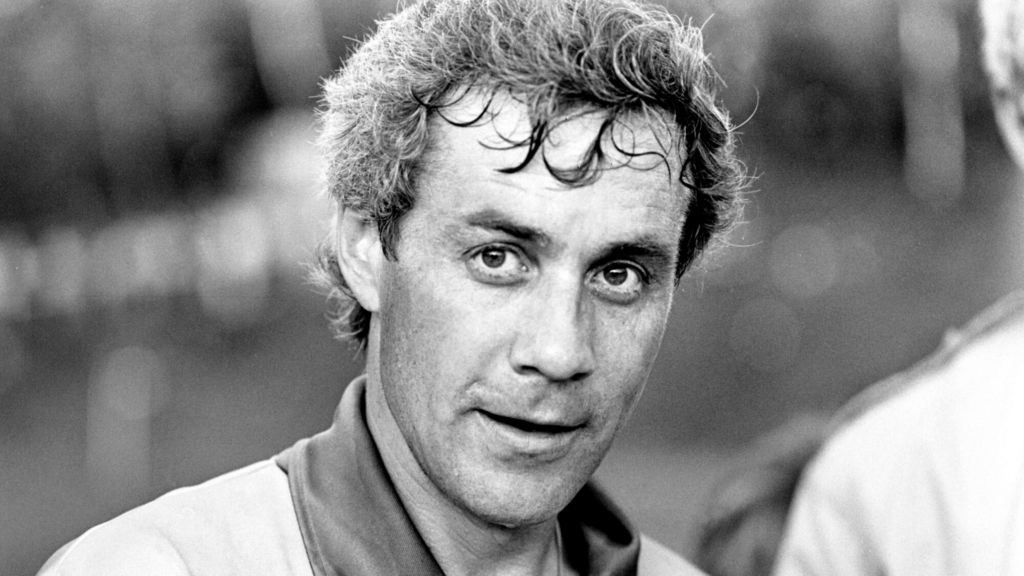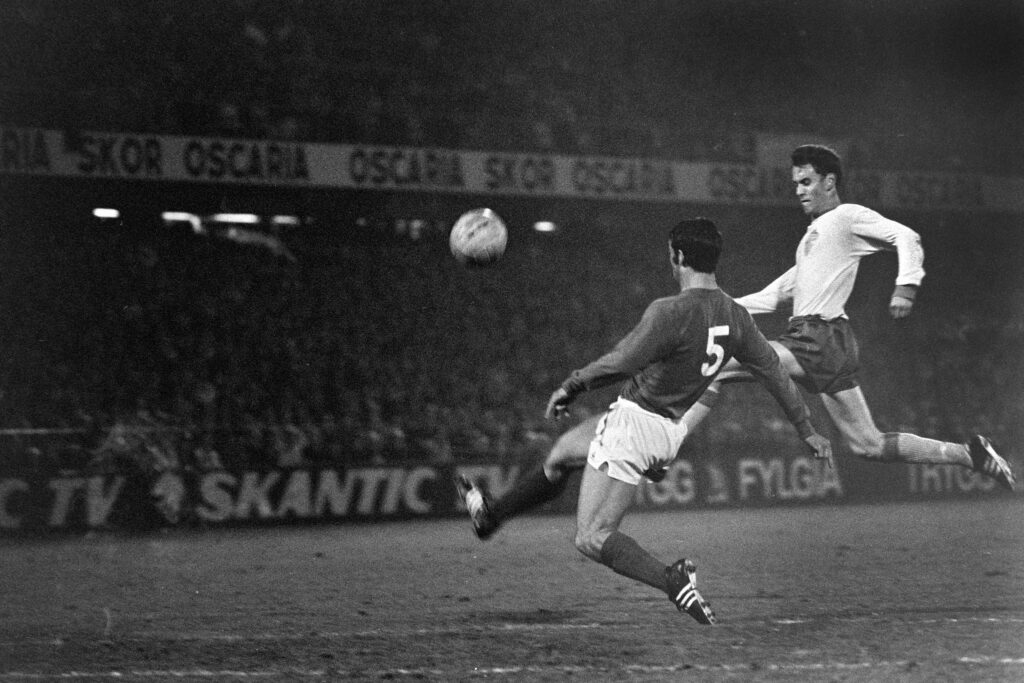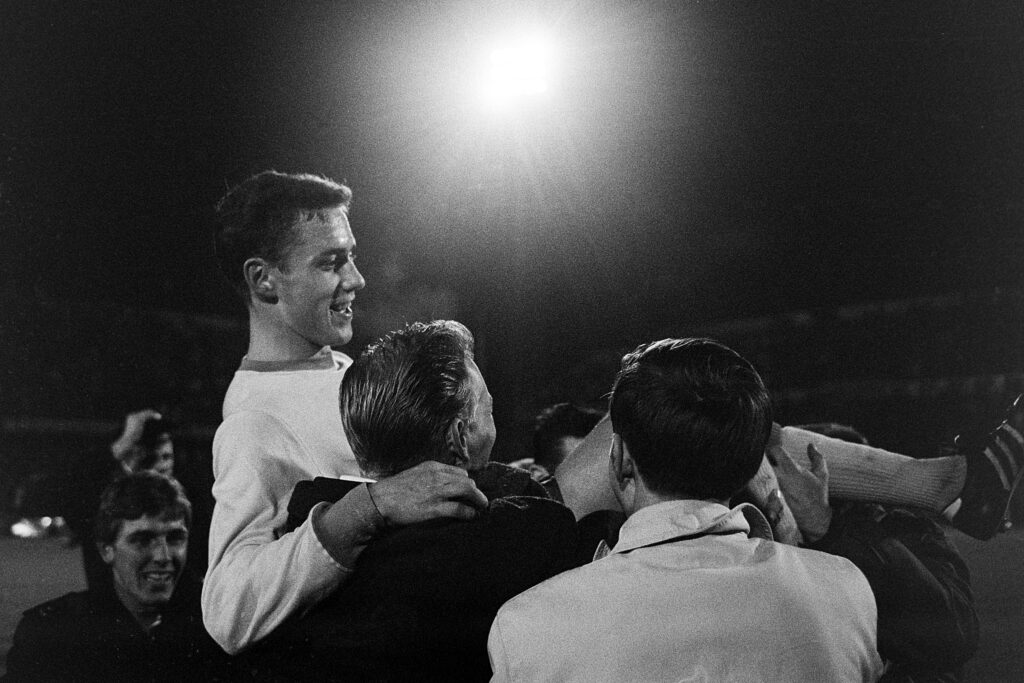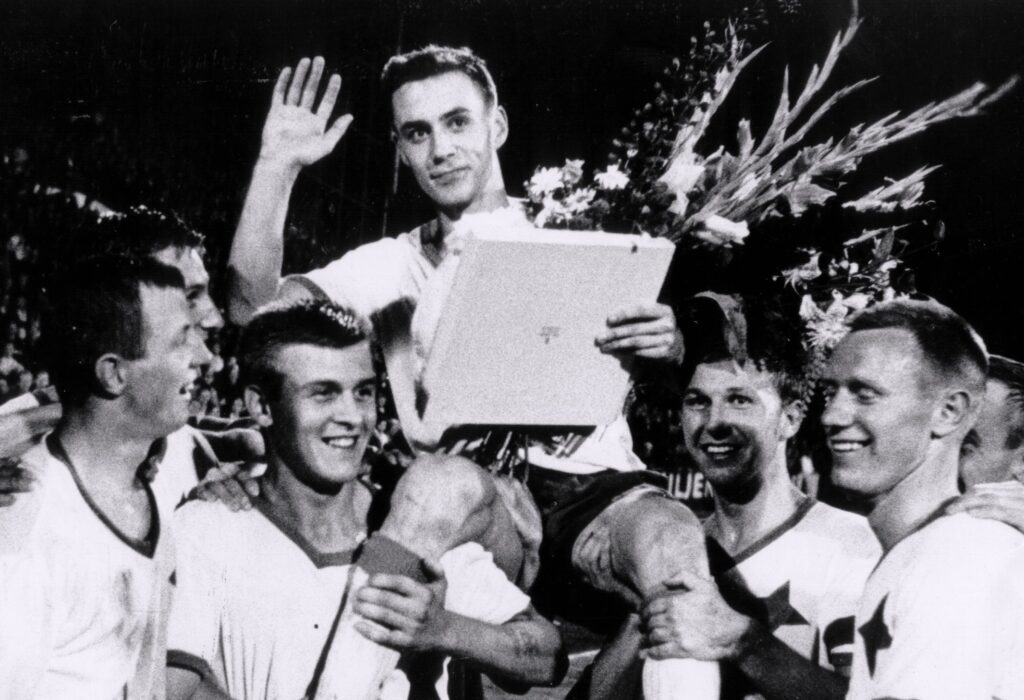
FACT/Ove Kindvall
Born: May 16, 1943, in Norrköping.
Clubs during his career: IFK Norrköping 1962–1966, Feyenoord (Netherlands) 1966–1971, IFK Norrköping 1971–1975, IFK Göteborg 1975–1977.
259 goals in 380 matches for the various clubs.
International appearances: 43 caps for the national team and 16 goals, 1965-1974.
Major achievements: He scored the winning goal in the 1970 European Cup final for Feyenoord in extra time against Celtic, won the Intercontinental Cup (Club World Cup) in 1970, and led Sweden to the 1970 World Cup with two decisive goals in the qualification match at Råsunda against France in 1969.
Awarded the Svenska Dagbladet Gold Medal (Bragdguldet) in 1969. Won Guldbollen (Swedish Footballer of the Year) in 1966. Dutch champion in 1969 and 1971. Dutch Cup winner in 1969. Dutch top scorer in 1968, 1969, and 1971. Swedish champion in 1963. Allsvenskan top scorer in 1966. Inducted into the Swedish Football Hall of Fame in 2008 as number 29.
He was awarded Bragdguldet in 1969 with the following citation: “For the two decisive goals in the World Cup qualifier against France at Råsunda.”
This is Ove Kindvall
Ove Kindvall was born on May 16, 1943, in Norrköping, where his father, Bengt, played at his best in IFK’s reserve team, and his uncle, Lars Appelqvist, was also an IFK member and even served on the board for several decades.
At 18, Ove debuted in the junior national team, and it became clear that IFK had developed an exceptional talent. Kindvall was a right-winger, reminiscent of Kurre Hamrin, but the competition within the club was fierce in the early 1960s. Ove had to wait a few years for his breakthrough with IFK.
However, the 1963 season was a breakthrough. Ove Kindvall played all 22 matches in the Allsvenskan and scored 14 goals.
IFK won its 11th Swedish Championship, and a new star was born.
“No one was as fast as Ove, especially over short distances. He also had a great sense for the game, and I believe he had a natural goal-scoring instinct from the start. He is without a doubt the best goal scorer I’ve ever played with,” said teammate Ulf Jansson.
When Harry Bild left IFK for a professional career in the summer of 1964, the team’s goal-scoring responsibilities fell heavily on Ove Kindvall, who was now playing center forward. Kindvall continued to deliver and was crucial to IFK’s offense for several years. 19 goals in 19 matches, 17 goals in 22 matches, and an astonishing 20 goals in 16 matches—soon, it became clear to everyone that Ove was too good for the Allsvenskan.
He chose Feyenoord for his family, despite offers from southern Europe.
“In Southern Europe, I could have earned much more, but that would have meant spending six years of my life in constant training camps, under military-like discipline, without the freedom to relax and live. Football means a lot to me, but not everything,” Ove Kindvall later explained to Dutch journalist Bert Nederlof.
On September 8, 1966, Ove Kindvall played his farewell match at Idrottsparken.
Those who were there will never forget it. AIK was defeated 6-0, and Ove Kindvall scored four goals. Even the usually reserved IFK coach, “Åby” Ericson, couldn’t resist praising his star forward afterward.
At Feyenoord, Ove Kindvall became a king.
He poured in goals from 1966 to 1971, becoming number one in the rankings when the newspaper Algemeen Dagblad ranked all the Swedish imports to the Eredivisie over the years.
Kindvall’s list of achievements is impressive reading: 129 goals and top scorer in 1968, 1970, and 1971. League champion in 1969 and 1971. Cup winner in 1969. …but above all, the most significant achievement was his decisive goal in the European Cup final against Celtic at San Siro in Milan. He scored the 2-1 goal in the 117th minute of extra time, becoming the first Swedish player to score in a final and securing the Netherlands’ first title in the champions’ tournament.
“I’m often reminded of that. My years at Feyenoord, especially the last three, were the best of my career,” Ove said when the top list was presented.
“The game was very different from back home in Sweden, with a lot of ball possession and position changes. I remember Ernst Happel (legendary coach) telling me, ‘Ove, you shouldn’t run around chasing the ball, you should get into the penalty area and score.’ So, I did.”
In the summer of 1971, Ove Kindvall returned to Norrköping with his wife, Sylvia, and their children. It was an adjustment in many ways, from playing in front of packed stands at De Kuip and competing at the top European level to an IFK that had lost its edge and its crowd. Ove had also changed as a player, and the goals didn’t come as frequently. Perhaps he had grown a little content.
But in the national team, he still had the trust of coach “Åby” Ericson, often playing in a deeper role. In the classic “snow match” against Austria in Gelsenkirchen in 1973, he first assisted Roland Sandberg for the 1-0 goal and then earned the penalty that made it 2-0. Sweden qualified for yet another World Cup.
In 1975, Ove Kindvall left IFK Norrköping for Göteborg. The move was primarily due to a good job offer at Jofa, but when Blåvitt got wind of the move, they wouldn’t rest until Ove had signed on. He spent two and a half seasons with Sweden’s then-popular team, which, despite playing in the second division, attracted large crowds. With the help of Ove Kindvall and players like Björn Nordqvist and Torbjörn Nilsson, the team climbed back to the Allsvenskan.
In 1977, Ove Kindvall hung up his boots after 15 years at the elite level. He could look back on a career with over 400 competitive matches for club and country and nearly 300 goals scored.
This undoubtedly makes him the most prominent footballer in Norrköping’s history.
Ove Kindvall, as the third top scorer in IFK Norrköping after Gunnar Nordahl and Christoffer Nyman, had a stand named after him at the club’s 125th anniversary.
“Ove Kindvall’s Honorary Stand” is located in the middle of the classic 1958 World Cup stand.



